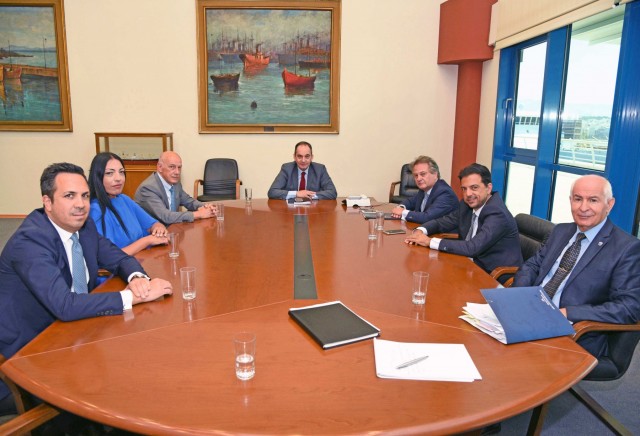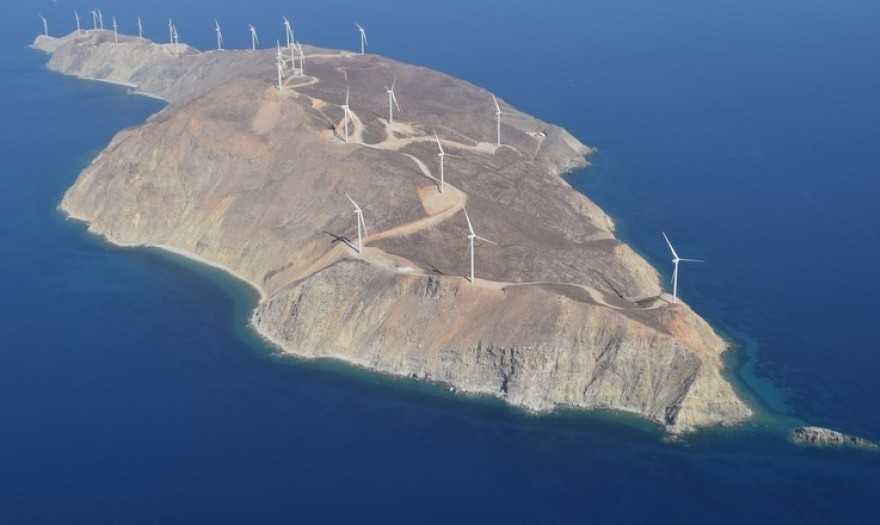...έχω ακούσει για τόσους πυλώνες . που θα μπορούσαν να έχουν κατασκευάσει γέφυρα για την Αίγινα.
Με κάθε αλλαγή ΥΕΝ, και μία σύναξη σαν την παρακάτω στην φωτογραφία. Ουσία ? αδιάφορο , διότι γνωρίζουν ότι αν δεν ξυστούν μόνοι τους, δεν πρόκειται να γίνει τίποτα.
Υπάρχουν τόσα μικρά θέματα που μπορούν αλλάξουν ώστε να γίνει καλλίτερη η ζωή των συναλλασσομένων.
Κάθε φορά διαβάζουμε για απαρχαιωμένες διατάξεις και νόμους από το 1950, και ποιος ξέρει μέχρι πότα θα υπάρχουν ακόμα, ώστε να γίνεται θέμα προς συζήτηση με τον κάθε νέο υπουργό.
Την Παρασκευή, 26 Ιουλίου, ο Υπουργός Ναυτιλίας και Νησιωτικής Πολιτικής, κ. Ι. Πλακιωτάκης, συναντήθηκε με το Προεδρείο της ΕΕΝΜΑ, αποτελούμενο από τον Πρόεδρο, κ. Χαράλαμπο Σημαντώνη, τον Α’ Αντιπρόεδρο, κ. Βασίλειο Τερζή, τον Γενικό Γραμματέα, κ. Γεώργιο Αλεξανδράτο, τον Ταμία, κ. Ευστράτιο Τσαλαμανιό και το μέλος του Διοικητικού Συμβουλίου, κ. Αλεξάνδρα Γκανά.
Στη συνάντηση παρουσιάστηκαν οι βασικοί πυλώνες προτεραιότητας για την Ελληνική Ναυτιλία Μικρών Αποστάσεων οι οποίοι αφορούν στην:
- Ενίσχυση της ανταγωνιστικότητας του πλοίου Ναυτιλίας Μικρών Αποστάσεων, μέσω της αναβάθμισης του θεσμικού πλαισίου για τις οργανικές συνθέσεις, την παροχή κινήτρων για την ανανέωση του στόλου και την προσαρμογή του εθνικού πλαισίου στις Κοινοτικές Οδηγίες.
- Βελτίωση της ελκυστικότητας του περιβάλλοντος λειτουργίας του ελληνικού πλοίου ΝΜΑ, μέσω της αναθεώρησης και εκσυγχρονισμού των διατάξεων και νομοθετημάτων που αφορούν λιμενικές και άλλες υπηρεσίες προς τα πλοία. Ειδικότερα, οι παρεμβάσεις αυτές αφορούν:
β. στην προσαρμογή της εθνικής νομοθεσίας στην Οδηγία περί λιμενικών εγκαταστάσεων παραλαβής και διαχείρισης αποβλήτων
γ. στην μείωση του ΦΠΑ σε ναυπήγηση και επισκευή, καύσιμα και λιπαντικά
Καλύτερη ενσωμάτωση της Ναυτιλίας Μικρών Αποστάσεων-ως το θαλάσσιο
τμήμα των μεταφορών- στην εθνική εφοδιαστική αλυσίδα και στα διευρωπαϊκά
δίκτυα.
Σκοπός της συνάντησης ήταν η ανάδειξη των διαχρονικών προβλημάτων που
αντιμετωπίζει η Ναυτιλία Μικρών Αποστάσεων, κυρίως λόγω του
απαρχαιωμένου νομοθετικού πλαισίου, που περιλαμβάνει έως και σήμερα σε
ισχύ νόμους του 1950, μειώνοντας την ανταγωνιστικότητα της ελληνικής shortsea ναυτιλίας και δημιουργώντας προβλήματα καθημερινής
δυσλειτουργίας στον κλάδο.
Το Προεδρείο της ΕΕΝΜΑ, τόνισε στον Υπουργό την ανάγκη εκσυγχρονισμού του νομοθετικού πλαισίου και την εναρμόνισή του με τους Κοινοτικούς Κανονισμούς, ώστε να υπάρξει προσέλκυση πλοίων στο Ελληνικό νηολόγιο, αύξηση απασχόλησης, καθώς και εισροή κεφαλαίων στη χώρα.
Φωτό: EENMA
Το Προεδρείο της ΕΕΝΜΑ, τόνισε στον Υπουργό την ανάγκη εκσυγχρονισμού του νομοθετικού πλαισίου και την εναρμόνισή του με τους Κοινοτικούς Κανονισμούς, ώστε να υπάρξει προσέλκυση πλοίων στο Ελληνικό νηολόγιο, αύξηση απασχόλησης, καθώς και εισροή κεφαλαίων στη χώρα.
Φωτό: EENMA




